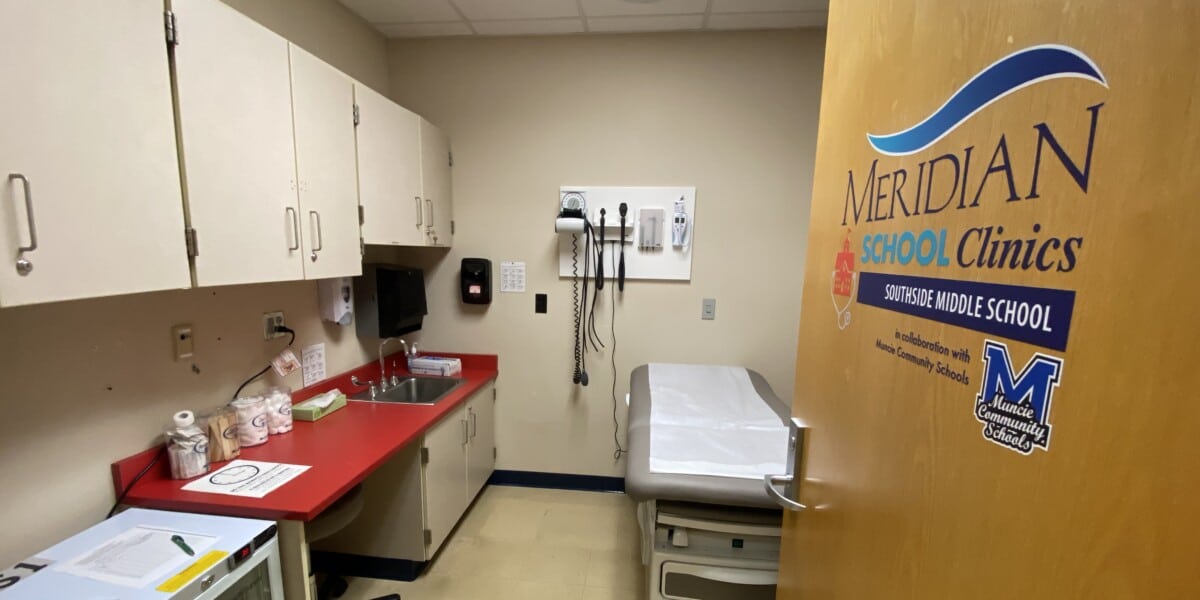From The Star Press
When schools began closing and stay-at-home orders were put in place, investigator Kris Swanson’s concern for child abuse was heightened.
A detective specializing in child abuse with the Muncie Police Department for about six years, he knew rates could rise during the pandemic.
He and his team typically saw a trend during the holiday season; cases would go up as children stayed home from school on winter break. Winter weather kept families cooped up and stress ran high from the holidays.
Now, due to COVID-19, kids from every school district are home, with no end-date in sight as stay-at-home orders continue .
“We won’t necessarily know how this has impacted child abuse until down the road,” Swanson said. April is National Child Abuse Prevention Month.
USA Today reported that the coronavirus pandemic could become a child abuse pandemic, as teachers and school administrators, who report one in every five child-mistreatment claims in the nation, can’t see their students in person.
The Centers for Disease Control and Prevention lists social isolation and unemployment as primary risk factors that lead to child abuse and domestic violence.
Are rates rising in Delaware County during the pandemic, and if so, is that something that can even be tracked?
Rates Steady, But More Abuse Could Be Occurring
Many of the cases that Swanson encounters come in on a delayed basis, and a vast majority of them are reported by a trusted adult, not by the victim.
That trusted adult is often a teacher, but while kids aren’t in school, there hasn’t been a change in the number of cases coming in.
“As far as our caseload, there’s not a significant reduction at this point, or increase, but we’re still getting a heavy flow of cases,” Swanson said. “We have to sit down and crunch numbers at the end of the year to see if there’s a comparison.”
Delaware County Prosecutor Eric Hoffman said that while arrests have remained down during the pandemic, officers are still taking on serious calls, like robberies, homicides and abuse cases.
While he can’t know for sure yet, Hoffman said he expects child abuse to still be occurring.
“I would think that there’s definitely child abuse and neglect going on,” Hoffman said. “We just don’t know about it, because people are shut in their homes.”
To truly know if rates are increasing, Hoffman said reporting is key, and during the pandemic, it’s up to neighbors, family and friends.
While law enforcement is taking fewer calls as a precaution against COVID-19, Hoffman said he believes the Muncie Police Department and Delaware County Sheriff’s Office are doing a great job while out on call.
“They really do get eyes on children, take a look and see what’s going on, even if they’re called for some related issue,” Hoffman said. “That’s really important.”
Organizations Carry on Through Coronavirus Pandemic
The child Advocacy Center, located in the Suzanne Gresham Center, helps about 163 children yearly. (Photo: Meridian Health Services)
Caseworkers with the Department of Child Services, law enforcement, legal teams, victim advocates and mental health providers all continue to work during the pandemic to keep children safe.
The Suzanne Gresham Center in Muncie is Meridian Health Services’ home for children and family treatment. It is also the site of the Child Advocacy Center, which brings together a multi-disciplinary team to pursue reports of child abuse more effectively.
Since the opening of the center more than 10 years ago, cases accepted for prosecution have tripled from 27% to now around 80%, according to Meridian.
Jordan Extine, practice manager of the Suzanne Gresham Center, said he hasn’t seen case numbers rise due to the pandemic, yet. But, with only being a month in, he could see that changing.
“We’re still continuing to have interviews, one or two a week for the past few weeks,” Extine said. “It’s still happening, it’s still being identified and the kids are still getting the support they need, but definitely not to the level I had originally anticipated.”
The center works alongside law enforcement, the Department of Child Services and advocacy groups. Once a case comes in, team members at the center will interview the child.
“In the specific interviewing, they know how to talk to the child, how to work through this trauma they’ve experienced,” Extine said. “While they’re doing that, then the rest of the team is in another room, taking notes, building their case to see what happened to that child and what they can do to assist them.”
From there, prosecutors and law enforcement will decide how to pursue the case. The center helps about 163 children yearly.
Sometimes those same families will continue on to use Meridian’s Wraparound Services, a national program to help parents struggling with their child’s behaviors or who are unable to provide appropriate care.
“These are the worst of the worst cases at times, so it can definitely weigh on these providers, but the way the team comes together is just awesome,” Extine said. “It shows that they really care.”
While COVID-19 has disrupted face-to-face interactions, Extine said behavioral clinicians and therapists have kept clients engaged.
The center has also had conversations with prosecutors about how it can make it more convenient for them when it comes to direct access to a case without being in the same room.
“With that really quick turnaround from face-to-face services, our children services workers have really stepped up to that challenge of reaching out to families, getting them engaged with zoom sessions and virtual sessions,” Extine said.
The center continues to reach out to clients during the pandemic in order to stay proactive against child abuse, instead of reactive. And for those who need services, doors are still open.
How to Help
Matthew Peiffer, founder of a Voice for Kids, a local organization fighting to end child abuse, said he expects child abuse rates to rise during the pandemic.
“A lot of people are being cooped up in their house, letting emotions overtake them a little bit,” Peiffer said. “During this time with people being stuck at home, I do understand frustrations are high. That’s probably the biggest the biggest concern I have.”
Peiffer, a victim of child abuse himself, has spoken to more than 200 groups about his experiences, including police departments, foster care and adoption organizations, schools and churches.
Typically, he instructs others to look out for typical signs of child abuse, such as flinching, being easily startled and hoarding or stealing food.
Stay-at-home orders can make that difficult, but Peiffer said friends and family can take the opportunity to use video chat to check in on children they know. He said teachers should also be using this to their advantage.
“A lot of time, teachers aren’t able to see what a kid’s home life is like,” Peiffer said. “With these online courses and being able to video chat their students, teachers sure able to put themselves in the shoes of their students.”
People can ask questions as simple as, “What did you have for breakfast?” or “How are you feeling today?” to check up on children.
Peiffer said it’s important for parents to remember that if they’re frustrated with their children in quarantine, go outside and take a walk.
“You should never punish a child out of anger,” Peiffer said. “Make sure you remember to let your tensions die down, so if you need to, take a walk for five minutes, revisit the situation and handle it properly.”
With most children on social media, Detective Swanson said to monitor their posts.
If a child writes something that seems depressing or dismal, he encourages people to reach out with questions like, “What did you mean by that?” or “Are you okay?”
“There’s a lot of time where information is getting put out that even if you’re not face-to-face with somebody, you may see symptoms,” Swanson said. “A change of behavior, maybe there’s a post that somebody makes that just doesn’t seem right that maybe needs to be explored.”
However, Swanson said reporting is key, and many people fail to make a report, because they aren’t 100% certain that abuse is happening.
Often, there’s a suspicion, but they might feel like it’s up to somebody else, someone more close to the situation, to report.
“Unfortunately, nobody is really going to know for sure, at any point in time, until it’s been investigated,” Swanson said. “If you suspect there’s child abuse, that’s when somebody needs to make a report.”
It’s everyone’s responsibility that if they see something, to say something, Hoffman said. During a time of social distancing, friends and family are crucial. Like Peiffer, he suggested using FaceTime or other video chat apps to keep an eye on children.
“I would say when we see children, just be diligent, be aware,” Hoffman said. “Take a look at the child, I’m not saying inspect it from head-to-toe, but don’t be oblivious to what you’re looking at.”
To make a report, call the Indiana Child Abuse and Neglect Hotline,1-800-800-5556.




